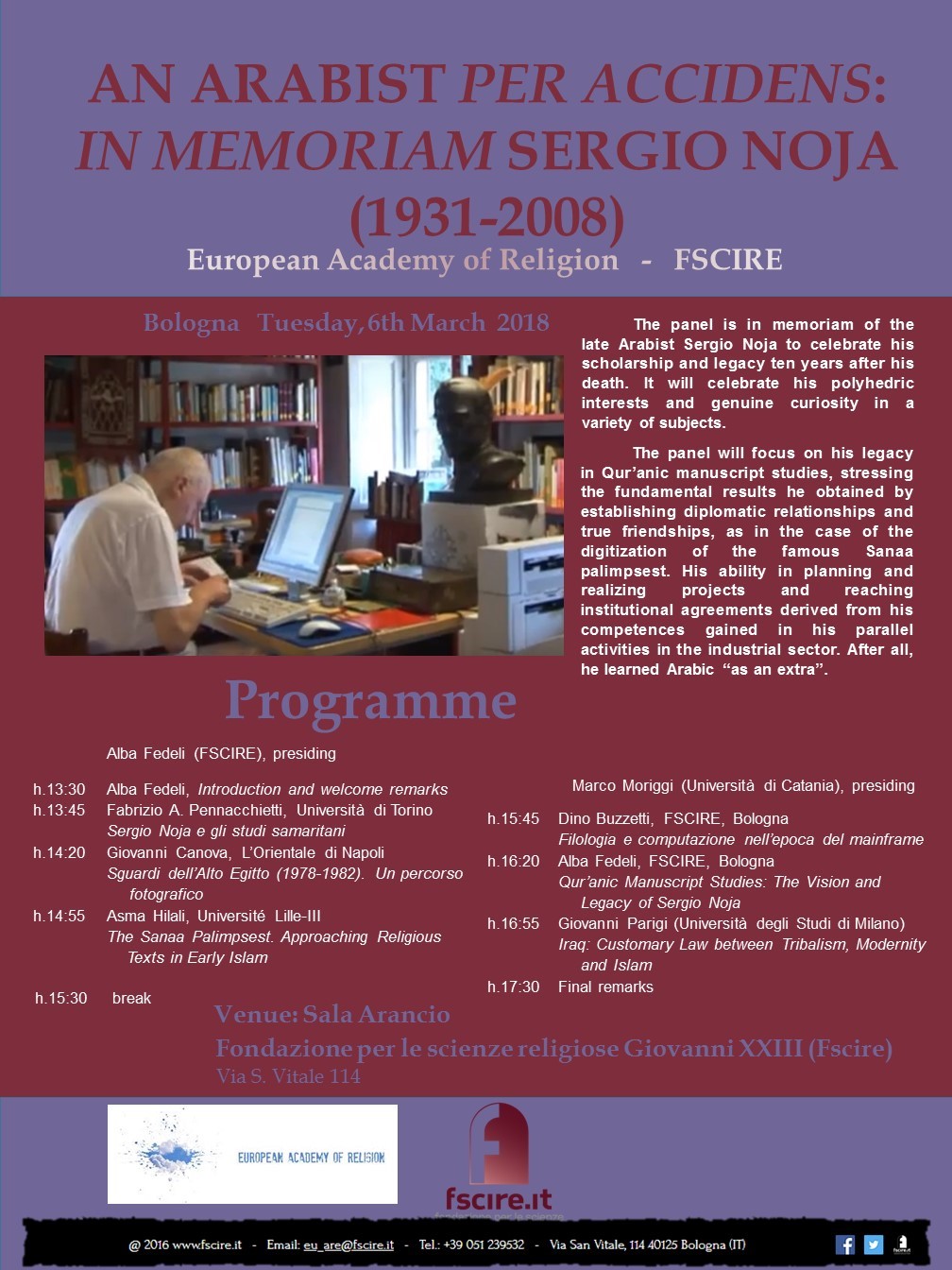The First Annual Conference of the European Academy of Religion took place in Bologna, from March 5 – 8, 2018. Several panels showcased developments in qur’anic studies, such as its emergence in Late Antiquity. This panel included papers on The Qur’an and Late Antiquity: A Critical Reconsideration, (Massimo Campanini, Trento), The Topos of the “preserved tablet” (al-lauḥ al-maḥfūẓ) in Al-Ghazālī’s Psychology, (Beate Ulrike La Sala, FU Berlin) and Digital Encoding of qur’anic Manuscripts: Understanding the Preserved Artefacts, (Alba Fedeli, FSCIRE, Bologna). Professor Campanini’s paper discussed which elements made Islam a “new” religion in respect to Judaism and Christianity and the need to question the basis of our understanding of the nature of pre-qur’anic, Arabian, ‘pagan’ religion. Dr La Sala examined Al-Ghazālī’s understanding of the “preserved tablet”, (al-lauḥ al-maḥfūẓ), a key concept in Arabic-language Islamic philosophy, which relates to the question of the ‘createdness’ of the Qur’an, and the problem of time and eternity. Dr Fedeli outlined her work on early qur’anic manuscripts, including the methodology applied to understand, analyse and display the manuscript text. Dr Fedeli also presented the recent results she has obtained in developing, testing and finalizing a system which is able to encode and convert manuscripts into a format suitable for being processed by computer programmes until now used in DNA analysis. This phylogenetic analysis can be used to obtain a computer-generated stemmatic, which can point to possible networks of manuscripts. The initial results will potentially allow for the development of a more detailed history of early Qur’an fragments and a better understanding of how they relate to each other.

The conference also included a panel in memoriam Sergio Noja Noseda, ten years after his death.
The panel was chaired by Noja’s former student and colleague, Alba Fedeli, who outlined his academic career, from his studies in Egypt in the 1950s, to becoming professor of Islamic law at the University of Turin, in 1967, and later at the Catholic University of Milan. Giovanni Galbiati, keeper of the Ambrosiana Library from 1924 to 1951, and under whom Noja studied Arabic at the Istituto Italiano per il Medio ed Estremo Oriente (ISMEO), in Milan, from 1951 to 1954, was instrumental in awakening Noja’s interests in manuscript studies, but his research interests also included Hebrew culture, Samaritan Studies, Islamic law, politics and history. In later life, Noja dedicated his time to examining the origins of the Arabic script.
Noja was the driving force behind the the Sana’a palimpsest digitization project from 2002, which has enabled scholars such as Benham Sadeghi, Mohsen Goudarzi and Asma Hilali to work on the text of the palimpsest. Dr Hilali presented her recent analysis of the palimpsest to the panel, in which she concluded that the unfinished nature of the palimpsest leaves point to it having been produced in a learning environment.
The European Academy of Religion (EuARe) was established in 2016 with support from the European parliament. The next annual conference will be held in Bologna in March 2019.
© International Qur’anic Studies Association, 2018. All rights reserved.
